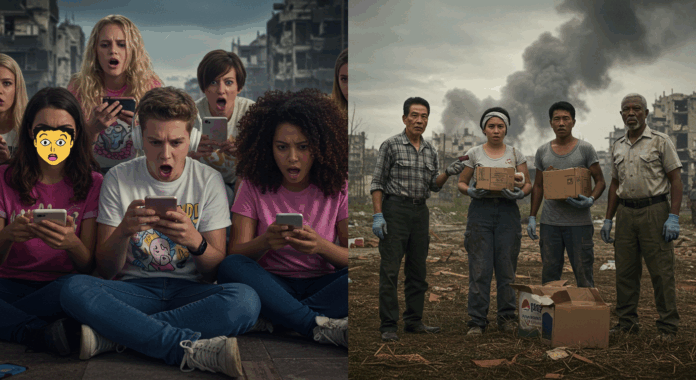In June 2025, the specter of a third World War isn’t just a grim headline; it’s a rapidly trending topic across social media. The phrase “World War III” has exploded as a leading hashtag on platforms like X (formerly Twitter), igniting a unique blend of anxiety, dark humor, and digital satire. This phenomenon starkly highlights the generational divide in how society grapples with existential threats, particularly between Gen Z and older generations.
For Gen Z, a generation born into a hyper-connected world saturated with information, the looming possibility of a global conflict is often processed through the lens of internet culture. Their coping mechanism, or perhaps their form of expression, manifests as a deluge of dark memes, satirical commentary, and a seemingly detached, almost absurd “loafing” attitude. It’s a way to reclaim a sense of control, or at least a way to articulate overwhelming anxieties, by transforming them into shareable, digestible content. Jokes about mundane daily tasks set against the backdrop of global chaos—like “job-hunting during wartime” alongside “recession, ICE raids, and the onset of WWIII”—become a common language for their dread, delivered with a characteristic blend of irony and fatalism. This digital coping mechanism is distinctive, often appearing irreverent or overly casual to those outside their demographic.
In contrast, older generations tend to react with a more somber, grounded perspective, often drawing on historical memory and lived experience. For them, the concept of a “World War” isn’t a new or abstract trend, but a chilling echo of past conflicts or the Cold War era. As one user, @jswtreeman, shared, “I was in elementary school in the 60s. I am well trained to survive WWIII.” This sentiment reflects a generation that grew up with air raid drills, nuclear deterrence, and a direct, tangible awareness of global tensions. Their “training” isn’t in digital satire, but in a more practical, ingrained resilience shaped by a different kind of global instability.
The trending of “WWIII” on social media thus exposes more than just global anxiety; it reveals a fascinating divergence in generational coping strategies. While Gen Z seeks to process and perhaps diffuse the gravity of the situation through collective digital humor and shared absurdity, older generations lean on lessons from a past where such threats felt closer and demanded a more traditional, perhaps stoic, response. The internet has become the new public square, but the conversations within it are profoundly shaped by who is doing the talking and how their generation has learned to cope with the unthinkable.


